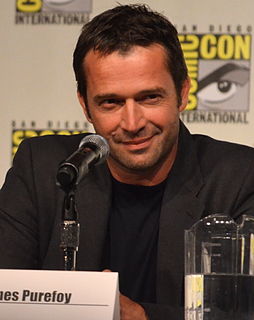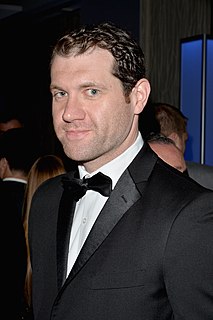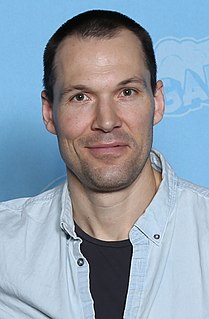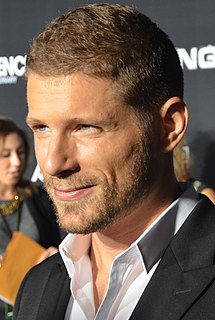A Quote by Bob Odenkirk
To me, great writing - and when you can really make something wonderful out of it as an actor - is when your character has a sense of self-awareness. It doesn't necessarily have to arc. It doesn't have to grow.
Related Quotes
As a writer, you know what the purpose of the scene is. It really has nothing to do with the actor so you have to really get out of that space because for actors it's a micro-focus and then you figure out your arc through what the writers have given you to say. But that arc is just one little piece of the huge arc of the whole film. It took a while to get out of that.
I want to say that what is cool about writing self-aware first person narrative is that the awareness is not necessarily the same awareness of the reader. I have a story coming out in the Paris Review and it's about a hipster. He think's he's self-aware, he's very introspective and analytical, but when you're reading it you can totally see through his self-analysis because you have a higher awareness than he does. I like playing with that too.
With self-awareness you grow more intelligent. In awareness you learn, in self-awareness you learn about yourself. Of course, you can only learn what you are not. To know what you are, you must go beyond the mind. Awareness is the point at which the mind reaches out beyond itself into reality. In awareness you seek not what pleases, but what is true.
Imagination, it turns out, is a great deal like reporting in your own head. Here is a paradox of fiction-writing. You are crafting something from nothing, which means, in one sense, that none of it is true. Yet in the writing, and perhaps in the reading, some of a character's actions or lines are truer than others.
Whether it's writing a monologue or writing standup or writing a screenplay or writing a play, I think staying involved in the creation of your own work empowers you in a way, even if you don't ever do it. It gives you a sense of ownership and a sense of purpose, which I think as an actor is really important.
As an actor, you don't want to ever get too comfortable where you're like, "I know this character," and you don't do the work anymore. Then, there's something that you're going to miss. If you always stay hungry to learn more about your character, that's a healthy thing, while having a great sense of who she is, at the core.
When you are writing, you have to love all your characters. If you're writing something from a minor character's point of view, you really need to stop and say the purpose of this character isn't to be somebody's sidekick or to come in and put the horse in the stable. The purpose of this character is you're getting a little window into that character's life and that character's day. You have to write them as if they're not a minor character, because they do have their own things going on.




































